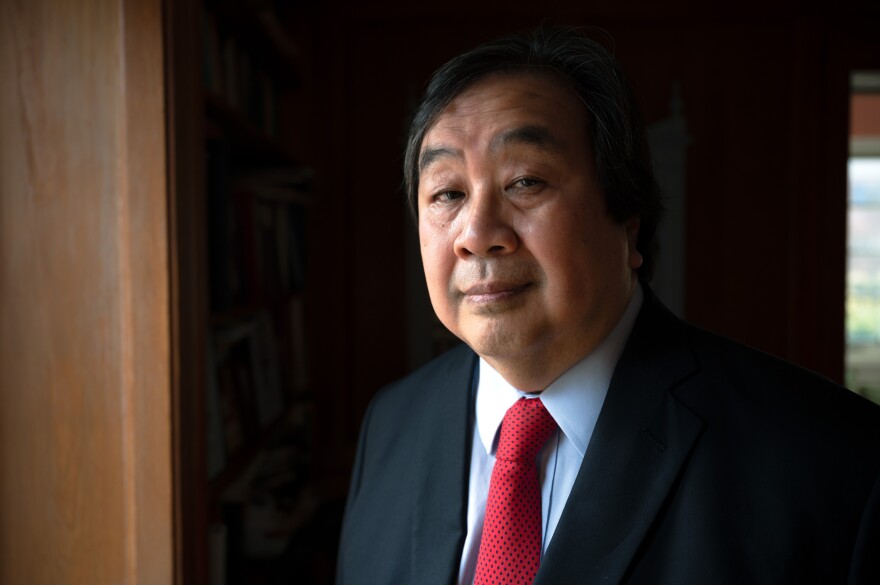The International Court of Justice in the Hague issued a ruling Wednesday ordering Russia to immediately suspend military operations in Ukraine. The ICJ is the United Nations court for resolving disputes between nations.
Harold Hongju Koh, Sterling Professor of International Law at Yale Law School, delivered closing arguments on behalf of Ukraine, which set this ruling in motion. Koh said the decision will further isolate Vladimir Putin as an outlaw.
"When someone’s branded an outlaw their bargaining position weakens. Most important I think it will force the Chinese to decide how much do they want to back him going forward?" Koh said Wednesday afternoon.
The legal decision now turns the stage over to the question of enforcement by the UN General Assembly and Security Council, according to Koh.
He spoke with CT Public Radio’s Diane Orson about the significance of the suit.
Orson: What is Ukraine asking of the International Court of Justice?
Koh: Ukraine is asking the court to order a suspension of Russian military operations that’s directed both against government military and also irregular armed forces like the Donetsk and Lugansk People’s Republic – so-called – which are paramilitary forces that are wreaking havoc across Eastern Ukraine. We’ve also asked that they not extend or aggravate the dispute by targeting political leaders, by not hitting civilians or civilian infrastructure. And we asked for them to report on a regular basis, a weekly basis about their activities that are going on.
Orson: I know that Russia did not appear during your arguments, but they did issue a written response. What do they say?

Koh: Well they didn’t appear because they didn’t have a defense and their lawyers who we’ve appeared against in another case, all quit because they couldn’t defend the conduct. So the letter was a pretty lame response.
They said first of all that they weren’t operating under the treaty which is the Genocide Treaty, which is obviously a falsehood. But they made an even more absurd argument which is that because Ukraine is committing genocide, that’s their claim, they have rights under the treaty to prevent that genocide. And to do so they have a right to recognize as independent states these paramilitary groups. And then they have a right to act in self-defense of those individuals.
This is the most ludicrous argument you could imagine. It would be as if I came into your house to try to steal things, saying that you were committing genocide and then if other accomplices came in with me, said I’m acting in self-defense of them. I don’t think they’re serious arguments.
Orson: I was struck by something you said in your argument. You called the case ‘singular’ and you said “...a Permanent Member of the United Nations Security Council decides, with planned premeditation, to commit naked aggression and war crimes.” And then you go on to say, “When confronted by such open illegality, is this Court utterly powerless to stop it?” So my question is, what in fact can the court do?
Koh: The court can issue an order suspending military action. That order has value in itself and then it can also be enforced. We expect the order to be sent to the UN General Assembly which has already acted under the Uniting for Peace resolution. It could be sent to the UN Security Council which we think there are various reasons why the Russians might not be able to veto that resolution. So that could lead immediately to the creation of some sort of UN Peacekeeping force that would be able to enter and try to create a humanitarian corridor. All they have to do is say we are enforcing the ruling of the court.
But more fundamentally it takes the claim of legality completely out of play, which means all the sanctions that are being imposed on Putin and his accomplices will have greater legitimacy. We think it will also affect the Chinese. They may find that if they end up entering the fray on Russia’s side then they’re clearly also acting illegally. And they’ve been very careful to stay out of the picture.
We think it also sets the stage for exploring the accountability of Putin and his fellow military leaders for other crimes that are occurring, war crimes, crimes against humanity.

And I think there are two things to really emphasize, Diane. One, Putin’s short game is force. But the world set up a framework of law in 1945 that has expanded and deepened. And we’re triggering that framework of law. And secondly, this is not just Ukraine vs. Russia. This is Russia vs. the world legal order. And this is a way in which the court can emphasize that Russia is an outlaw. Putin’s an outlaw. And everything they do going forward after this ruling is being done in a world of illegality.
Diane, in March 3rd 2020, this was seven days before the pandemic really hit, I went to Ukraine. And I was in Kyiv. I met this very talented international law student named Tata who was my tour guide. She took me around and spoke about the hopes of the Ukrainian people. The other day I saw her on CNN. She’s in full military garb. She’s working at a military hospital. She said she was surrounded by the bodies of dead children. And she said, “Where’s the law that I studied? Where’s the law that I believed in?” And so this suit is an answer to that question.


